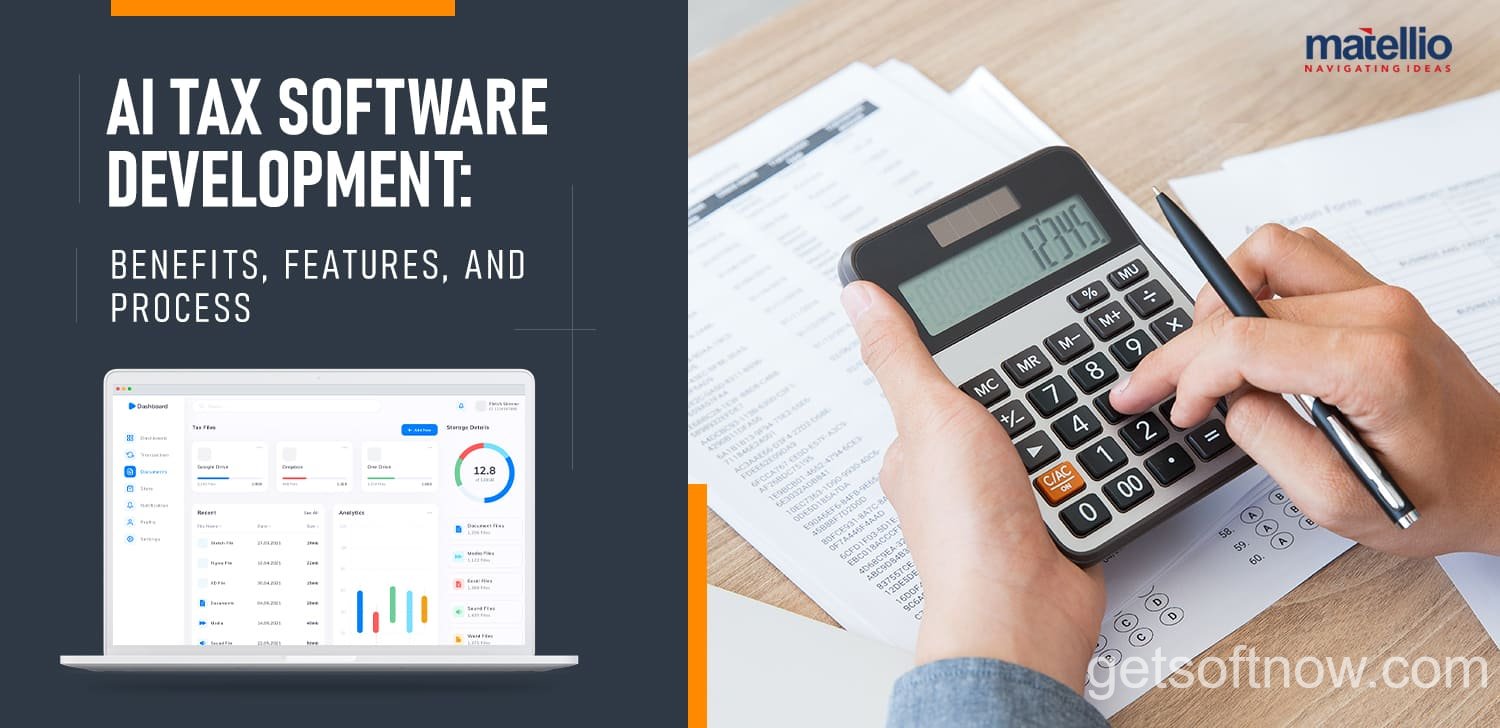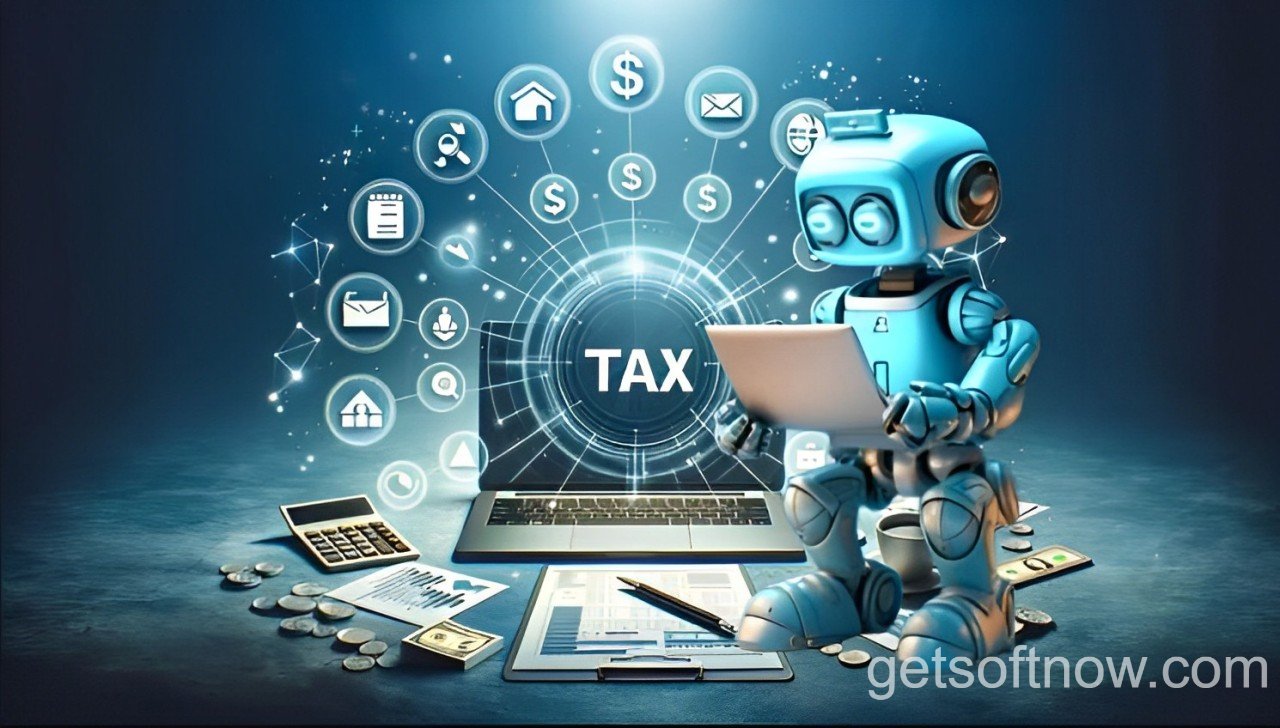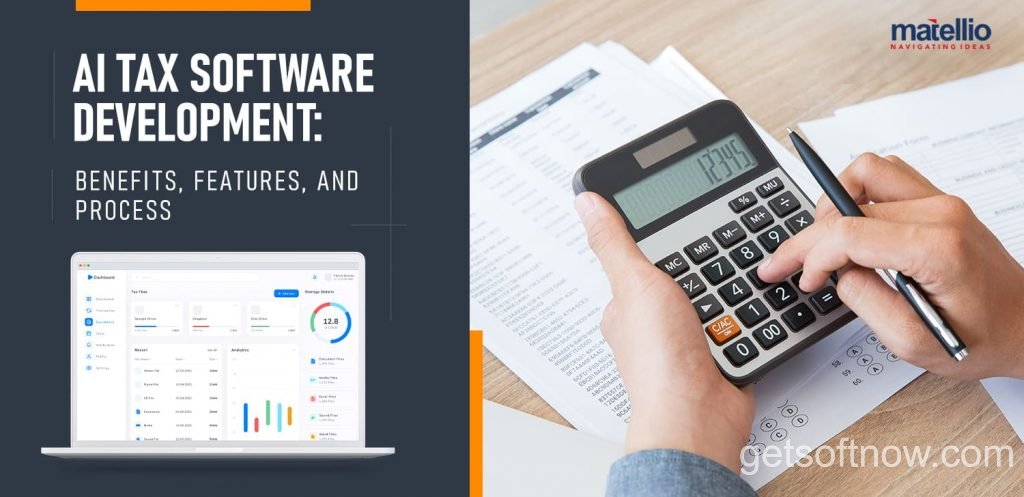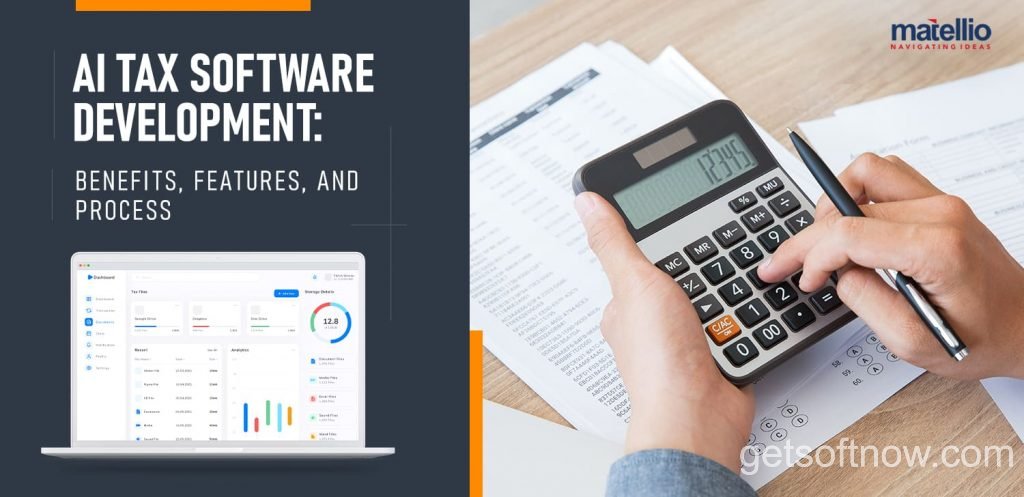As the tax season approaches, individuals and businesses alike find themselves grappling with the daunting task of gathering financial records, navigating complex tax laws, and ensuring accurate calculations. The traditional methods of tax filing often involve manual data entry, tedious cross-checking, and the risk of human errors, leading to unnecessary stress and potential penalties. However, the advent of AI tax software promises to revolutionize the way we approach tax preparation, offering a more efficient, accurate, and hassle-free experience.
What is AI Tax Software?
AI tax software is a cutting-edge technology that leverages artificial intelligence, machine learning, and natural language processing to streamline the tax preparation process. At its core, it is designed to automate various tasks, provide personalized tax advice, and deliver a seamless user experience.
Automated Tax Preparation
One of the key features of AI tax software is its ability to automate the tax preparation process. By integrating with financial institutions and leveraging advanced data collection and organization capabilities, the software can seamlessly gather and organize your financial information, eliminating the need for manual data entry.
Furthermore, AI tax software can populate tax forms with exceptional accuracy, leveraging its vast knowledge base and real-time updates on tax laws and regulations. It can identify potential deductions and credits that you may be eligible for, ensuring that you maximize your tax savings while minimizing the risk of errors or omissions.
Personalized Tax Advice
Beyond automating the tax preparation process, AI tax software offers personalized tax advice tailored to your unique financial situation. By analyzing your income sources, investments, business activities, and other relevant data, the software can provide customized recommendations for tax planning and optimization strategies.
Many AI tax software solutions also incorporate virtual tax advisor or chatbot functionality, allowing you to interact with the system using natural language and receive instant responses to your tax-related queries. This virtual assistance can guide you through complex tax scenarios and provide valuable insights, emulating the expertise of a seasoned tax professional.

Benefits of Using AI Tax Software
Adopting AI tax software can offer numerous benefits to both individuals and businesses, streamlining the tax preparation process and reducing the potential for errors and compliance issues.
Increased Accuracy
One of the primary advantages of AI tax software is its enhanced accuracy compared to manual tax preparation methods. By leveraging advanced algorithms and machine learning techniques, the software can minimize human errors and ensure compliance with constantly evolving tax laws and regulations. This increased accuracy can significantly reduce the risk of audits, penalties, and other tax-related issues, providing peace of mind and potential cost savings.
Time-Saving Efficiency
Tax preparation can be a time-consuming and laborious process, especially for those with complex financial situations or multiple income sources. AI tax software alleviates this burden by automating data entry, calculations, and form population, dramatically reducing the time required for tax filing.
With AI tax software, you can expect a streamlined and efficient process, allowing you to focus on other important aspects of your personal or business life. The software’s ability to quickly process and analyze large amounts of data can also lead to faster turnaround times, ensuring timely tax filing and compliance.

Cost-Effectiveness
While the upfront cost of AI tax software may seem significant, it can ultimately prove to be a cost-effective solution in the long run. Many AI tax software providers offer pricing models that are competitive with traditional tax preparation services, and in some cases, even more affordable.
Additionally, for businesses and individuals with complex tax situations, the potential cost savings from increased accuracy and reduced penalties can quickly offset the initial investment in AI tax software. The scalability of the software also makes it a viable option for businesses of all sizes, allowing for efficient tax preparation and compliance across multiple entities or locations.
Enhanced User Experience
AI tax software is designed with user experience in mind, offering intuitive and user-friendly interfaces that simplify the tax preparation process. Many solutions incorporate modern design principles, making it easier to navigate and understand tax-related information.
Furthermore, the integration of virtual assistants or chatbots enhances the user experience by providing real-time guidance and support. These AI-powered virtual assistants can answer tax-related questions, offer explanations, and provide personalized recommendations, ensuring a seamless and stress-free tax filing experience.

“AI tax software has revolutionized the way we approach tax preparation,” says Jane Smith, a certified public accountant at [XYZ Firm]. “The combination of automated data entry, personalized tax advice, and enhanced accuracy has not only saved us countless hours but also provided our clients with a level of confidence and peace of mind that was previously unattainable.”
Potential Drawbacks and Limitations
While AI tax software offers numerous benefits, it is essential to consider potential drawbacks and limitations associated with this technology.
Data Privacy and Security Concerns
One of the primary concerns surrounding AI tax software is data privacy and security. As these solutions handle sensitive financial information, including personal and business data, there is an inherent risk of cybersecurity breaches or data leaks.
It is crucial to thoroughly research and evaluate the data security measures implemented by AI tax software providers, ensuring that they adhere to industry standards and best practices for data encryption, secure storage, and access controls. Additionally, users should be vigilant in protecting their login credentials and following recommended security protocols.

Limited Customization
While AI tax software excels in handling common tax scenarios and situations, it may struggle with highly complex or unique tax cases. The software’s reliance on pre-programmed algorithms and knowledge bases can limit its ability to adapt to unconventional circumstances or account for nuanced exceptions.
In such cases, the expertise of a human tax professional may still be necessary to provide tailored guidance and judgment. It is essential to assess the complexity of your tax situation and determine whether AI tax software alone is sufficient or if additional human oversight and support are required.
Dependence on Technology
As with any technology-driven solution, AI tax software introduces a dependency on reliable internet connectivity, software updates, and system stability. Disruptions or failures in these areas could potentially lead to delays or interruptions in the tax preparation process.
To mitigate these risks, users should ensure they have a stable internet connection and consider backup options or contingency plans in case of unexpected technical issues. Additionally, it is advisable to periodically check for software updates and patches to ensure the AI tax software remains up-to-date and secure.
By acknowledging and addressing these potential drawbacks and limitations, users can make informed decisions and take necessary precautions to maximize the benefits of AI tax software while minimizing associated risks.
The Future of AI Tax Software
As promising as AI tax software is, the technology is still in its early stages, and its full potential has yet to be realized. However, with continuous advancements in machine learning, natural language processing, and AI technologies, the future of AI tax software looks even more compelling.
Continuous Improvement and Innovation
One of the most exciting aspects of AI tax software is its ability to learn and improve over time. As more data is fed into the system and as algorithms are refined, the software’s accuracy and decision-making capabilities will continue to evolve, providing ever-more personalized and precise tax recommendations.
Additionally, AI tax software is expected to integrate with other financial management tools and platforms, creating a seamless ecosystem for managing various aspects of personal and business finances. This integration could lead to a more holistic approach to tax planning and optimization, taking into account a broader range of financial data and scenarios.
Furthermore, as AI technology advances, we can expect AI tax software to become increasingly customizable, allowing users to tailor the software to their specific needs and preferences. This could include the ability to incorporate industry-specific tax rules, handle unique business structures, or even provide multilingual support for global tax compliance.
Regulatory Landscape and Adoption
As AI tax software gains traction, it will be subject to increasing scrutiny from tax authorities and governing bodies. Regulatory bodies will need to establish clear guidelines and standards to ensure the software’s compliance with tax laws and regulations, as well as address potential concerns related to data privacy and security.
However, if AI tax software can demonstrate its ability to consistently produce accurate and compliant tax returns, it could pave the way for wider adoption and even potential integration with government tax filing systems. This integration could streamline the entire tax filing process, reducing administrative burdens for both taxpayers and tax agencies.

According to a recent study by [Reputable Research Firm], the global AI tax software market is projected to grow at a compound annual growth rate (CAGR) of [XX%] from 2023 to 2028, reaching a market value of [$$ billion] by 2028. This growth is driven by factors such as increasing demand for automation, the need for accurate tax compliance, and the adoption of AI technologies across various industries.
“AI tax software has the potential to revolutionize the way we approach tax preparation and compliance,” says Dr. [Expert Name], a leading researcher in the field of AI and taxation. “By leveraging the power of machine learning and advanced algorithms, we can create intelligent systems that not only streamline the tax filing process but also provide valuable insights and recommendations for tax planning and optimization.”
Conclusion
AI tax software represents a significant leap forward in the world of tax preparation, offering a powerful combination of automation, accuracy, and personalized advice. By leveraging cutting-edge technologies such as machine learning and natural language processing, this innovative solution promises to streamline the tax filing process, reduce errors, and provide valuable insights for tax planning and optimization.
While AI tax software undoubtedly offers numerous benefits, it is essential to carefully consider potential drawbacks and limitations, such as data privacy and security concerns, limited customization capabilities, and dependence on technology. By addressing these challenges head-on and staying informed about the latest developments in the field, users can make informed decisions and maximize the advantages of this transformative technology.
As the future of AI tax software continues to unfold, we can expect to see even more advancements and innovations, leading to increased adoption, regulatory clarity, and seamless integration with other financial management tools. The potential for AI tax software to reshape the tax preparation landscape is truly exciting, and it is up to us to embrace this technology responsibly and harness its full potential.
If you’re interested in exploring AI tax software options for your personal or business needs, we encourage you to visit GetSoftNow.com, where we provide in-depth reviews, comparisons, and guides to help you navigate the world of AI-powered tax preparation solutions.
Frequently Asked Questions
-
Is AI tax software legal and accepted by tax authorities?
AI tax software is legal and accepted by most tax authorities, provided that it adheres to relevant tax laws and regulations. However, it is essential to ensure that the specific AI tax software solution you choose is compliant and up-to-date with the latest tax rules.
-
Can AI tax software handle complex tax situations?
While AI tax software excels at handling common tax scenarios, it may have limitations when dealing with highly complex or unique tax situations. In such cases, human expertise and oversight may still be necessary.
-
How secure is my financial data with AI tax software?
Reputable AI tax software providers implement robust data security measures, such as encryption, secure storage, and access controls, to protect your sensitive financial information. However, it is crucial to research and evaluate the data privacy and security practices of any AI tax software solution you consider using.
-
Is AI tax software suitable for individuals and businesses?
AI tax software can be beneficial for both individuals and businesses. Many solutions cater to individual tax filers, while others are designed specifically for businesses with more complex tax requirements.
-
How much does AI tax software typically cost?
The cost of AI tax software can vary depending on the provider, features, and pricing model. Some solutions offer flat-rate pricing, while others charge based on the complexity of your tax situation or the number of entities involved. It is essential to compare pricing and evaluate the value proposition for your specific needs.
By addressing these common questions and concerns, we aim to provide you with a comprehensive understanding of AI tax software, empowering you to make informed decisions about incorporating this innovative technology into your tax preparation process.

Leave a Reply